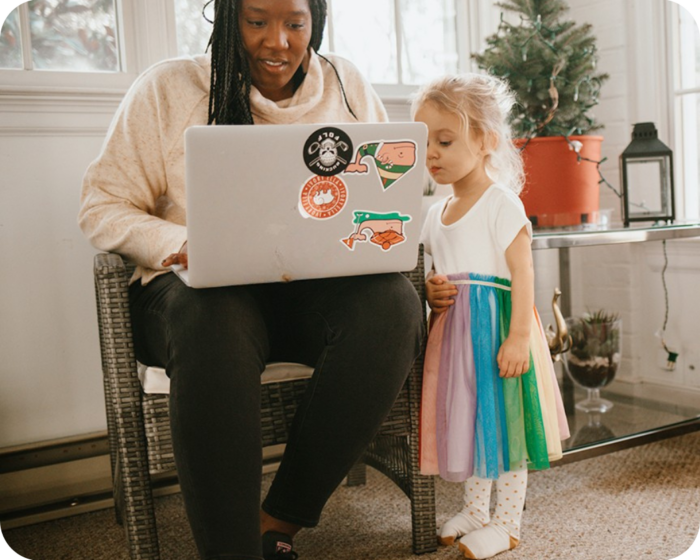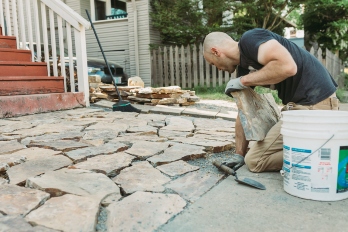This installment is part of an ongoing series about the challenges buyers face during COVID-19 and how the homebuying process is adapting to meet their needs.
You may be familiar with using a notary public to witness your signature on a contract or other legal document.
Notaries are necessary for the homebuying process, too. When your loan closes, for example, you’ll meet with a closing agent who notarizes your signature.
But meeting with others face-to-face has been tricky (or outright advised against) during COVID-19, so how are notarizations being handled amidst quarantines and social distancing?
Here’s the tea:
Do notarizations need to be in person?
That depends. Some states allow them to be done virtually via webcams, in a method officially known as Remote Online Notarization (RON), but also referred to as online or virtual notarization.
For a RON, you meet with your closing agent virtually, typically through a secure computer program. The closing agent confirms your government-issued identification, watches and records as you sign, and adds an electronic version of their seal to the document.
Archiving virtual notarizations
Similar to how documents themselves get filed away, videos of RONs are also stored for safekeeping. Lenders often specify how long they must be archived.
“Some ask that the video be retained for the life of loan plus 10 years,” notes Marc L. Aronson, president and CEO of the Pennsylvania Association of Notaries. “That could mean archiving videos for 50 years or so.”
State and local laws
We’re about to get a little technical on you as notarization practices, like so many other aspects of a real estate transaction, vary by state and region. Plus, there are some laws involved. We promise to make this all as simple as possible!
Before COVID-19, 24 states legalized RONs for real estate transactions and the recording or filing of documents: Alaska, Arizona, Florida, Idaho, Indiana, Iowa, Kentucky, Maryland, Michigan, Minnesota, Montana, Nebraska, Nevada, North Dakota, Ohio, Oklahoma, South Dakota, Tennessee, Texas, Utah, Vermont, Virginia, Washington, and Wisconsin.
In light of the pandemic, several more announced emergency decrees to allow RONs to be used temporarily during COVID-19. Only three states — California, Oregon, and South Carolina — currently do not allow RONs.
However, though states can legalize RONs, it’s up to county government offices to decide whether to accept them.
At the national level
There is action at a national level to make RONs legal across the country.
The Securing and Enabling Commerce Using Remote and Electronic Notarization (SECURE) Act of 2020, introduced in Congress earlier this year, would authorize every notary in the United States to perform RONs, provided they use secure computer programs for the virtual meetings.
However, as of May 2020, it remains to be seen whether the act will be signed into law.
So who can use a virtual notary?
If RONs are not legal in your state, you may be able to use a notary who is licensed in a state where they are legal.
However, you may want to make sure that your lender and title insurance company allow RON, especially if you are using an out of state notary. Additionally, local government offices must be able to archive electronically recorded documents or be willing to print them out for their files.
However, if you can use a RON, then you can sign your closing documents from the comfort of your own home.
- Interested in more on this topic? Check out our post on closings during COVID-19.
- Is your closing date approaching? Here’s how to prepare for closing in six steps.




